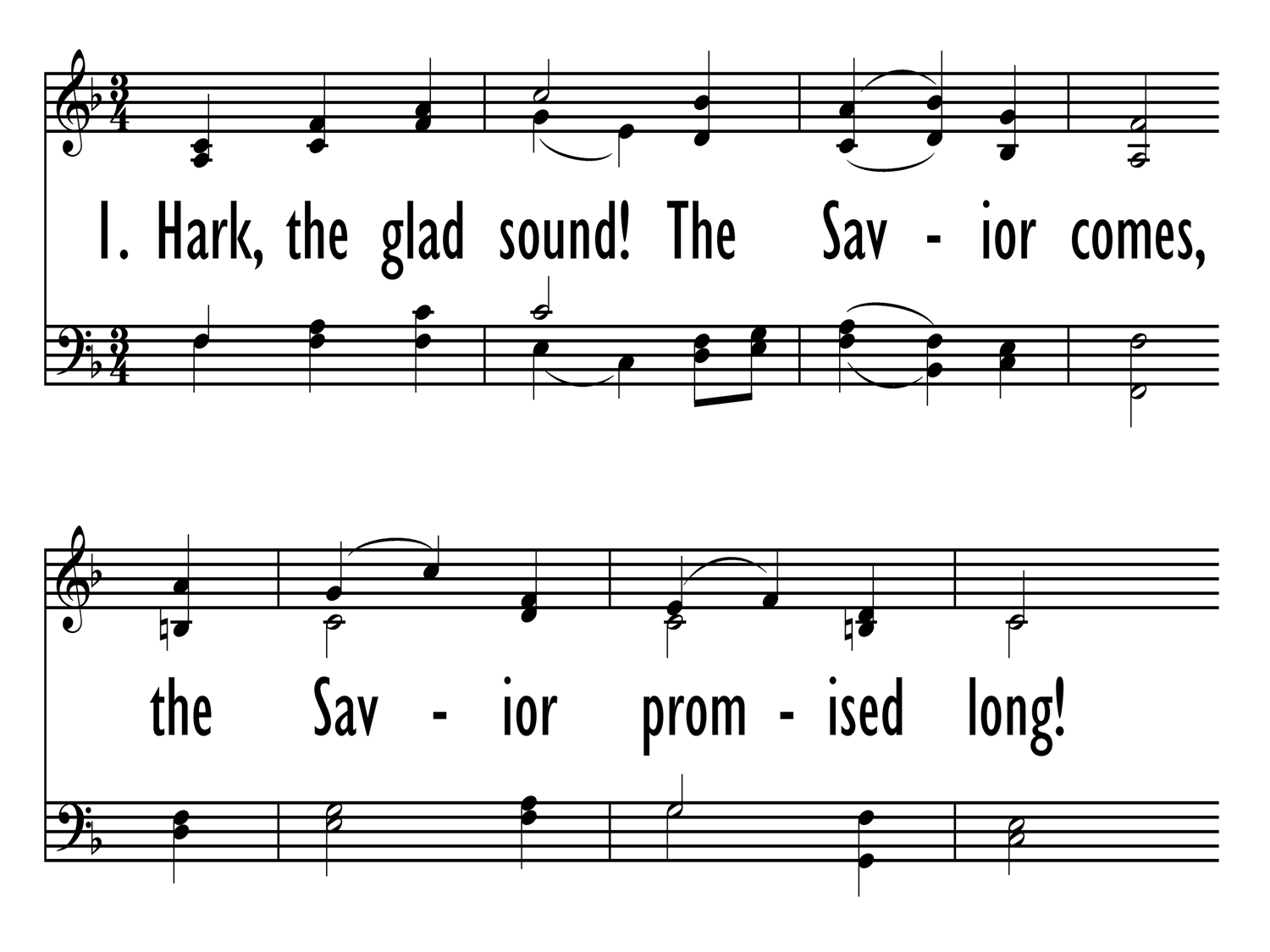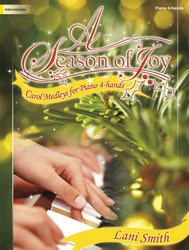- |
User Links
Hark, the Glad Sound! The Savior Comes
Hymn Information
- First Line
- Hark, the glad sound! The Savior comes
- Author
- Philip Doddridge (1735)
- Tune Name
- RICHMOND
- Composer
- Thomas Haweis (1792)
- Adapter
- Samuel Webbe (1808)
- Composer (descant)
- Craig S. Lang, 1891-1971
- Topic
- Biblical Names and Places: Satan · Church Year: Advent · Church Year: Christ the King · Freedom · Jesus Christ: Second Coming · Occasional Services: Healing Service · Poverty and Oppression
Copyright Information
- Text Copyright
- Public Domain
- Tune Copyright
- Desc. used by permission of Novello and Company, Ltd., admin. G. Schirmer, Inc.
- Reprint/Projection Information
- Words: The Words are in the Public Domain; you do not need permission to project or reprint the Words.
- Music: Permitted with a license from CCLI.com. If you do not own this license, please contact the copyright holder for permission.
Full Text
Scripture References
Thematically related:
- st. 1 =
- st. 2 =
Further Reflections on Scripture References
“Hark, the Glad Sound!" is a fine Christological hymn; it uses the Old Testament text as Christ himself did. Stanza 1 speaks about the Savior's coming. Stanzas 2 and 3 quote the Isaiah and Luke passages about Christ's mission to release those in prison, to heal the wounded, and to enrich the poor. Stanza 4 concludes with a glad response of welcome and praise to our Savior.
Confessions and Statements of Faith References
Further Reflections on Confessions and Statements of Faith References
The phrase “long-expected” and “the Savior promised long” are descriptors of Jesus and are familiar terms to many Christians. These words speak of generations who waited while centuries passed. Our World Belongs to God, paragraph 23 also uses such terminology in calling him the “long-awaited Messiah.” And Belgic Confession, Article 18 professes that this all happened only “at the time appointed.”
Hark, the Glad Sound! The Savior Comes
Call to Worship
Offer up to God your thanksgiving.
Words of Praise
Confession
Assurance
Blessing/Benediction
Hark, the Glad Sound! The Savior Comes
Tune Information
- Name
- RICHMOND
- Key
- F Major
- Meter
- 8.6.8.6


 My Starred Hymns
My Starred Hymns







